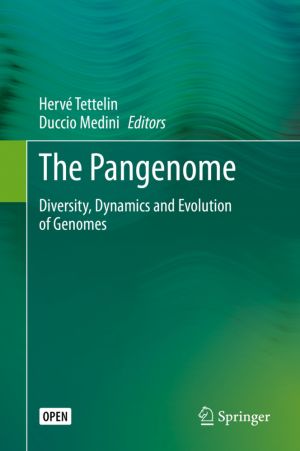
This open access book offers the first comprehensive account of the pan-genome concept and its manifold implications.
The realization that the genetic repertoire of a biological species always encompasses more than the genome of each individual is one of the earliest examples of big data in biology that opened biology to the unbounded. The study ...
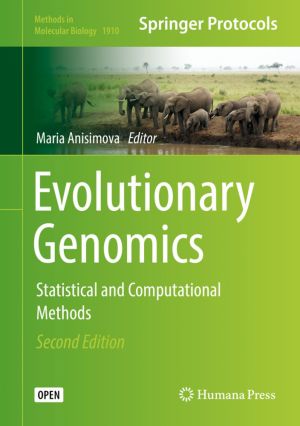
This book addresses the challenge of analyzing and understanding the evolutionary dynamics of complex biological systems at the genomic level, and elaborates on some promising strategies that would bring us closer to uncovering of the vital relationships between genotype and phenotype. After a few educational primers, the book continues with sectio...
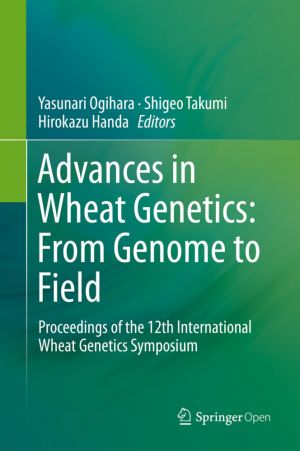
This proceedings is a collection of 46 selected papers that were presented at the 12th International Wheat Genetics Symposium (IWGS). Since the launch of the wheat genome sequencing project in 2005, the arrival of draft genome sequences has marked a new era in wheat genetics and genomics, catalyzing rapid advancement in the field. This book provide...
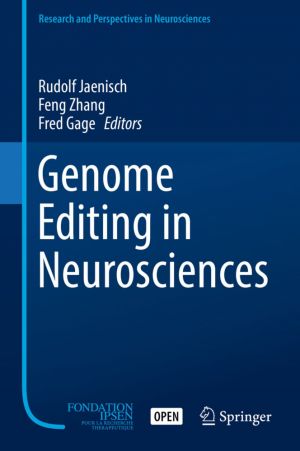
Innovations in molecular biology are allowing neuroscientists to study the brain with unprecedented resolution, from the level of single molecules to integrated gene circuits. Chief among these innovations is the CRISPR-Cas genome editing technology, which has the precision and scalability to tackle the complexity of the brain. This Colloque Médec...
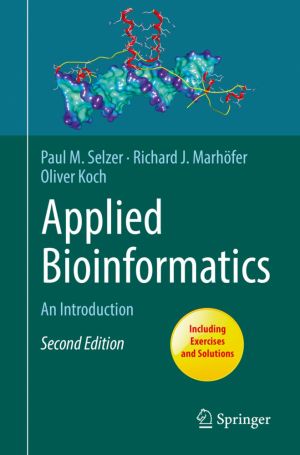
This book introduces readers to the basic principles of bioinformatics and the practical application and utilization of computational tools, without assuming any prior background in programming or informatics. It provides a coherent overview of the complex field and focuses on the implementation of online tools, genome databases and software that c...
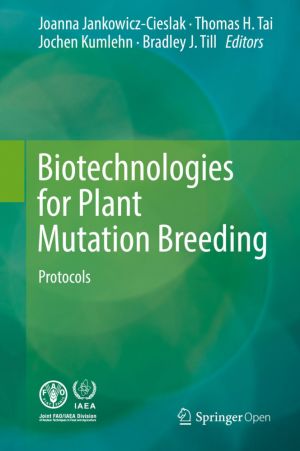
This book offers 19 detailed protocols on the use of induced mutations in crop breeding and functional genomics studies, which cover topics including chemical and physical mutagenesis, phenotypic screening methods, traditional TILLING and TILLING by sequencing, doubled haploidy, targeted genome editing, and low-cost methods for the molecular charac...

The average person can name more bird species than they think, but do we really know what a bird "species" is? This book takes up several fascinating aspects of bird life to elucidate this basic concept in biology. From genetic and physiological basics to the phenomena of bird song and bird migration, it analyzes various interactions of b...
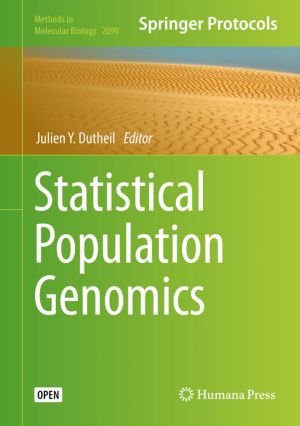
This open access volume presents state-of-the-art inference methods in population genomics, focusing on data analysis based on rigorous statistical techniques. After introducing general concepts related to the biology of genomes and their evolution, the book covers state-of-the-art methods for the analysis of genomes in populations, including demog...

This book provides a comprehensive overview of recent novel coronavirus (SARS-CoV-2) infection, their biology and associated challenges for their treatment and prevention of novel Coronavirus Disease 2019 (COVID-19). Discussing various aspects of COVID-19 infection, including global epidemiology, genome organization, immunopathogenesis, transmissio...

Recent years have seen spectacular advances in the field of circadian biology. These have attracted the interest of researchers in many fields, including endocrinology, neurosciences, cancer, and behavior. By integrating a circadian view within the fields of endocrinology and metabolism, researchers will be able to reveal many, yet-unsuspected aspe...
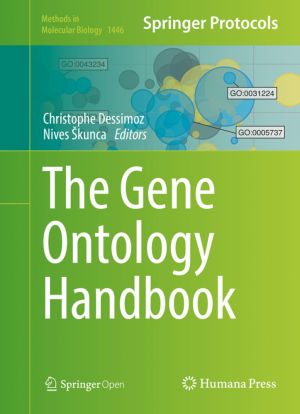
This book provides a practical and self-contained overview of the Gene Ontology (GO), the leading project to organize biological knowledge on genes and their products across genomic resources. Written for biologists and bioinformaticians, it covers the state-of-the-art of how GO annotations are made, how they are evaluated, and what sort of analyse...
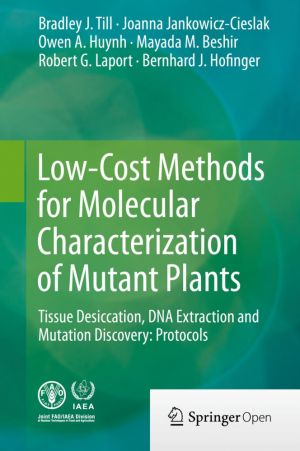
This book offers low-cost and rapid molecular assays for the characterization of mutant plant germplasm. Detailed protocols are provided for the desiccation of plant tissues; the extraction of high-quality DNA for downstream applications; the extraction of single-strand-specific nucleases for single nucleotide polymorphism; and small insertion/dele...

A major objective of this book is to summarize the current status of Buruli Ulcer (BU) research for the first time. It will identify gaps in our knowledge, stimulate research and support control of the disease by providing insight into approaches for surveillance, diagnosis, and treatment of Buruli Ulcer. Book chapters will cover the history, epide...

This book provides original, up-to-date case studies of "ethics dumping" that were largely facilitated by loopholes in the ethics governance of low and middle-income countries. It is instructive even to experienced researchers since it provides a voice to vulnerable populations from the forementioned countries. Ensuring the ethical conduc...
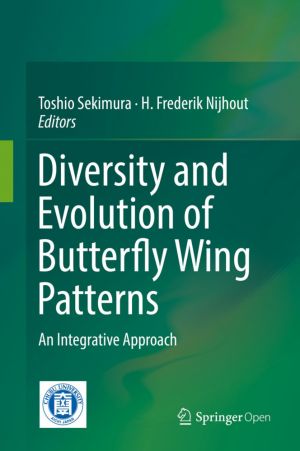
This book facilitates an integrative understanding of the development, genetics and evolution of butterfly wing patterns. To develop a deep and realistic understanding of the diversity and evolution of butterfly wing patterns, it is essential and necessary to approach the problem from various kinds of key research fields such as "evo-devo,&quo...
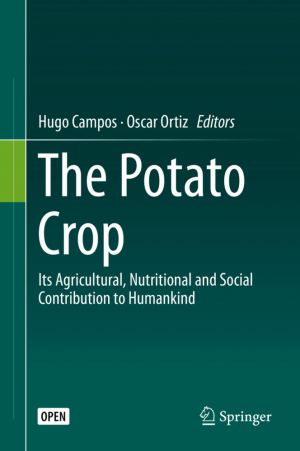
This book provides a fresh, updated and science-based perspective on the current status and prospects of the diverse array of topics related to the potato, and was written by distinguished scientists with hands-on global experience in research aspects related to potato. The potato is the third most important global food crop in terms of consumption...
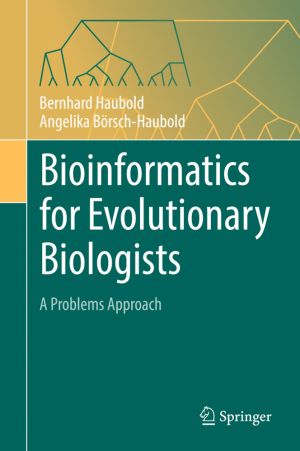
This self-contained textbook covers fundamental aspects of sequence analysis in evolutionary biology, including sequence alignment, phylogeny reconstruction, and coalescent simulation. It addresses these aspects through a series of over 400 computer problems, ranging from elementary to research level to enable learning by doing. Students solve the ...
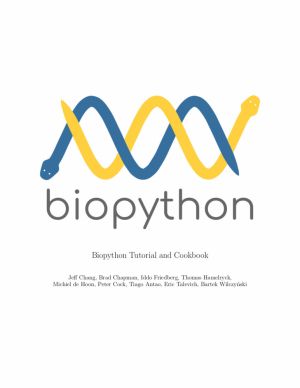
The Biopython Project is an international association of developers tools for computational molecular biology. Python is an object oriented, interpreted,flexible language that is becoming increasingly popular for scientific computing. Python is easy to learn, hasa very clear syntax and can easily be extended with modules written in C, C++ or FORTRA...
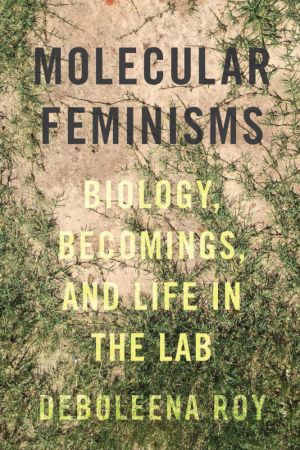
In Molecular Feminisms, Roy investigates science as feminism at the lab bench, engaging in an interdisciplinary conversation between molecular biology, Deleuzian philosophies, posthumanism, and postcolonial and decolonial studies. She brings insights from feminist theory together with lessons learned from bacteria, subcloning, and synthetic biology...
